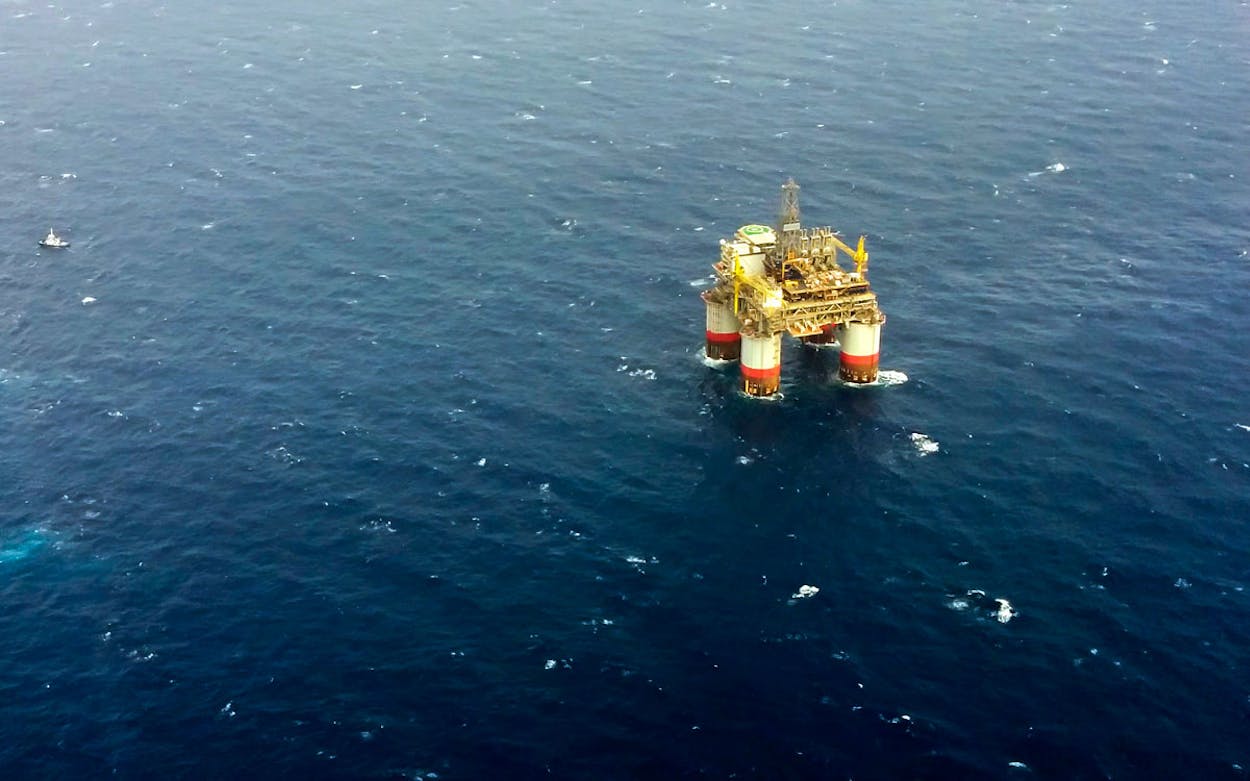Offshore drilling doesn’t get a lot of attention these days. With weaker oil prices, the more expensive deepwater projects have slowed. Last week, only 18 rigs were active in the Gulf of Mexico, compared with 48 just five years ago. The Trump administration has vowed to change that, despite the economic limitations of oil prices, and it’s targeted one of its favorite villains: Obama-era regulations.
Specifically, the Bureau of Safety and Environmental Enforcement (BSEE), which oversees offshore drilling regulations, wants to re-examine the so-called well-control rule. That rule set new requirements in the wake of BP’s 2010 Deepwater Horizon disaster that killed eleven men and unleashed the worst offshore oil disaster in U.S. history.
BSEE director Scott Angelle, who lobbied on behalf of the industry against the drilling moratorium Obama imposed after the 2010 accident, told the Houston Chronicle he doesn’t want the agency focused “little bitty things” rather than big things.
What concerns long-time industry veterans David Pritchard and Jesse Roye is that one of the things Angelle has indicated he would like to roll back is a requirement that operators monitor data from their wells in real time. Real-time data, they say, may be the industry’s most effective tool in preventing accidents and hazards—and perhaps even the next catastrophe.
“We think we’ve gotten better since Macondo [a.k.a., the Deepwater Horizon oil spill],” said Pritchard, a petroleum engineer and drilling safety expert who’s worked for several major offshore drillers. “Statistics prove exactly the opposite. We’re not getting better; we’re getting worse.”
With activity in the Gulf half what it was just two or three years ago, the industry has experienced twice the rate of hazardous incidents, he said.
Pritchard and Roye teamed with BP’s former head of drilling in the Gulf, Kevin Lacy, to form Proactive RT Solutions, a Houston-based company developing software that would alert the industry to impending accidents using real-time data.
Deepwater operators have long collected real-time well data from their wells, but Pritchard claims they’ve never used it effectively to avoid hazards such as “kicks” that can be the first sign of a blowout. Investigators found that BP supervisors, for example, weren’t monitoring the real-time data coming from the Deepwater Horizon on the night of the explosion. The data showed pressure building in the well bore, presaging disaster.
In the old days, the industry operated on a mentality that rig workers had the most expertise and greatest familiarity with the well. But as the industry has aged, more of that expertise has moved onshore. Real-time data monitoring allows workers—both on the rig and onshore—to pool their knowledge and insights. In simple terms, it represents another set of eyes that might spot a problem before disaster ensues.
Companies have resisted the regulations because they don’t like anything that slows down the drilling process, which costs an average of $1 million a day. “The industry culture assumes speed is saving money,” Pritchard said. “Reliability actually saves money. If you avoid hazards, you will, by definition, also save money, lives and the environment.”
Other industries, such as airlines, use data more effectively to avert accidents. Weather forecasters use real-time data to alert people to possible tornadoes, rather than waiting until after the fact. General Electric can monitor real-time data from its power plant turbines and predict maintenance issues to avoid breakdowns.
In the offshore industry, however, alarms typically don’t sound until after a hazard happens. “They’re completely reactive instead of proactive,” Pritchard said.
The industry’s pushback against the rules is ironic, Roye said, because other countries already have such requirements in place. Many of the operators complaining about stricter rules in the Gulf already follow them in places like the North Sea and Australia, where real-time monitoring has been required for almost a decade.
“We have a John Wayne cowboy attitude that perceives speed as the end-all outcome of drilling operations,” Pritchard said. “That’s just a false premise, especially with today’s complex wells.”
If the Trump administration wants to expand offshore drilling, using existing tools to make it safer—and more cost effective—is essential. Neither the country nor the industry can afford another Macondo.
- More About:
- Energy







